
Sportlight_7
.pdf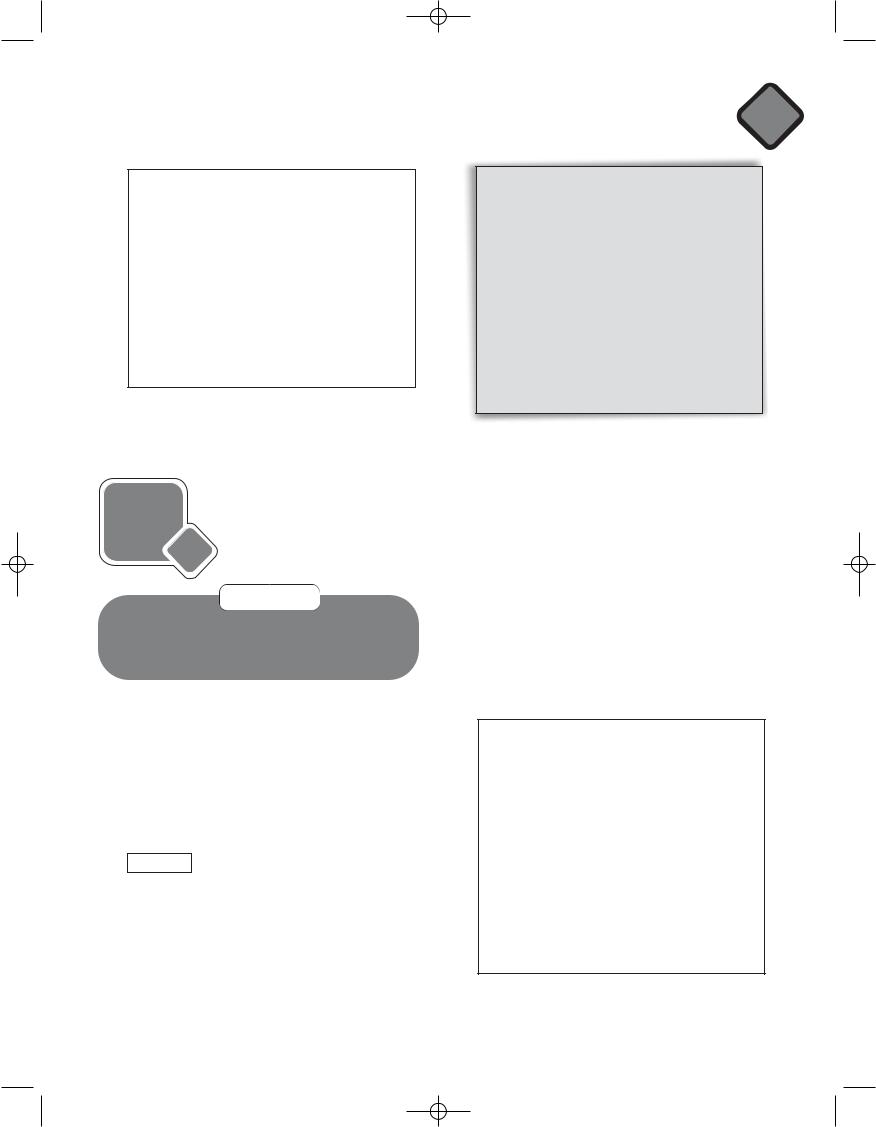
Spotlight 7 ts Mod 10 12-09-08 15:02 Page 141
Accident-prone 10b
Synergy
ñAllow Ss one minute to think about vocabulary, language and grammar structures they have learnt in today’s lesson. Ask Ss to use them to make
own sentences.
ñWhen Ss have finished ask them to get and go around the class to find a partner who has something in common with
e.g. same hair/eye colour, same clothes, same taste in music, etc.
ñAsk Ss to discuss what they have learnt the lesson with their partner.
10 c Doctor, doctor!
Objectives
Reading & listening: a letter of advice
Speaking: a monologue
Writing: a letter of advice
Introduction
Ask Ss to look at the title, Doctor, doctor!, and the board game. Elicit/Explain the meaning of the title
(asking for a doctor's advice). Ask them what they think the unit will be about. Encourage Ss to predict what vocabulary they will see in the unit.
Game
Focus Playing a game to practise vocabulary
Focus Ss’ attention on the board game. Ask Ss if they can explain what the game is about and predict how it is played. Elicit answers and provide clear explanations and instructions. Check Ss’ understanding of the game and the instructions. Show what heads and tails are on a coin. Read through the list and elicit the meaning of any new
vocabulary. Ask a S to read out the example and revise the form of first conditional sentences. Ss play the game in pairs. Monitor the activity, acting as a referee and intervening only if necessary. At the end of the game elicit answers around the class.
Suggested Answer Key
If you have a stomachache, you should eat a light meal.
If you have an earache, you should put drops in it. If you have a sore throat, you should have a hot cup of tea.
If you feel exhausted, you should lie down and get some rest.
If you have a toothache, you should take a painkiller.
If you have a high fever, you should drink plenty of fluids.
If you have sore eyes, you should wash them with cold water.
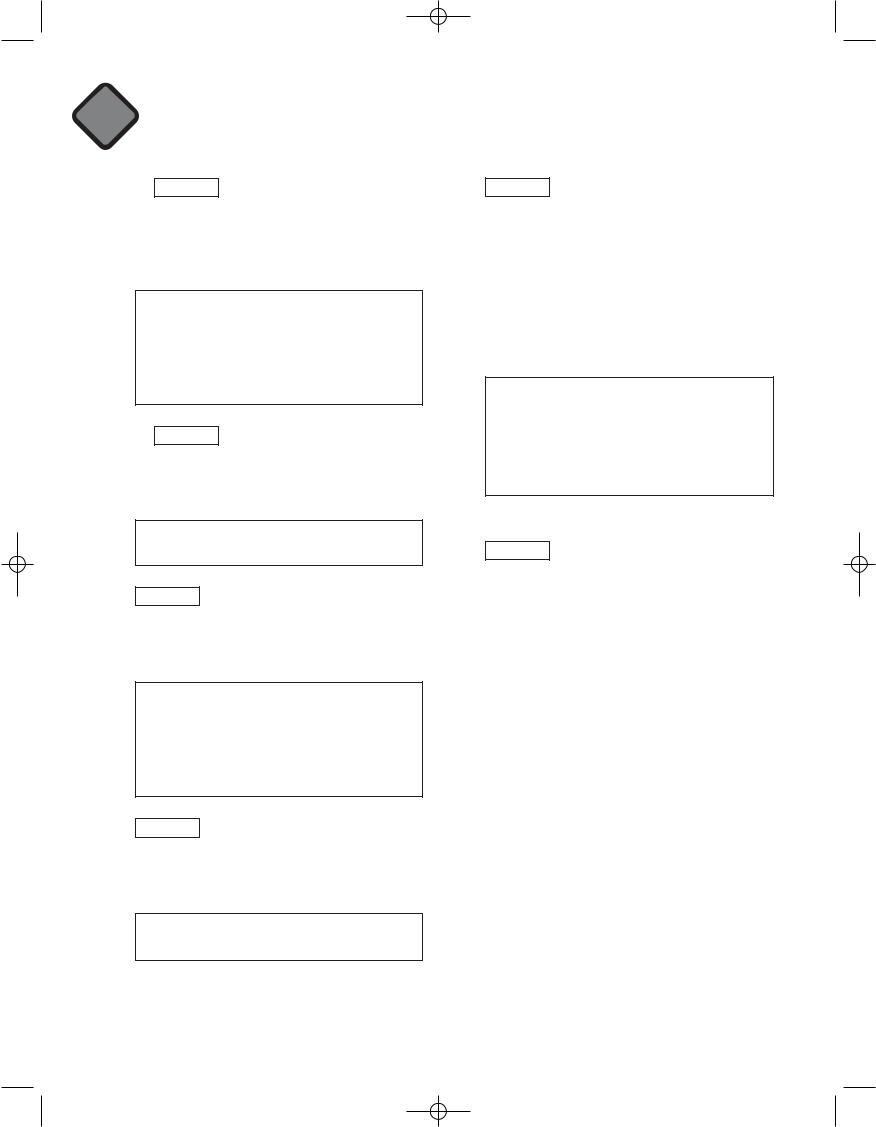
Spotlight 7 ts Mod 10 12-09-08 15:02 Page 142
10c Doctor, doctor!
& Listening
Focus Predicting content
Draw Ss’ attention to the texts, focusing on the assumed names in bold and eliciting their meanings. Ss read the texts to answer the questions in the rubric. Check Ss’ answers.
Answer Key
They are short letters to a magazine asking for advice. ‘Worn out’ is exhausted and he/she needs to feel better before the tennis tournament. ‘Computer Freak’ has got lots of headaches and his/her eyes are sore all the time.
b) Focus Reading for specific information
Explain the task. Ask Ss to read through the letter and match it to the appropriate extract. Play the recording and then check Ss’ answers.
Answer Key
It matches letter A. It is addressed to ‘Worn Out’
2Focus Reading for detailed understanding;
analysing a letter giving advice
Explain the task. Ss read the letter and answer the questions in the rubric. Check Ss’ answers.
Answer Key
Paragraph 2
ñFirst of all, it’s important to … .
ñWhy don’t you … ? This way, you’ll … .
ñYou should also think about … . If you do this, you’ll … .
3Focus Working with opening/closing remarks
Elicit/Explain what opening/closing remarks are. Allow Ss time to read the text again and complete the task. Check Ss’ answers.
Answer Key
1 O |
2 C |
3 C |
4 O |
Speaking
4Focus Giving advice
Read out the rubric and explain the task. Elicit/ Explain what Computer Freak’s problem is. Brainstorm for advice and write ideas on the board. Elicit expressions/language of advice (You should(n’t) … ; Why don’t you … ?; Why not … ?; How about … ?; I think … is a good way to … ). Ss complete the task in pairs. Select pairs to report back to the class. Provide feedback and correct where necessary.
Suggested Answer Key
He should get a filter for his computer.
He should try to work less on his computer. He should get more sleep.
He should get his eyes checked because he might need glasses.
Writing
5Focus Writing a letter of advice
Go through the rubric with Ss and elicit key words
(letter of advice, 60-80 words). Brainstorm with Ss for ideas. Write the ideas on the board. Go over the model letter with Ss again and elicit the topic of each paragraph (para 1: greetings, general comments/ remarks, para 2: detailed advice, para 3: closing remarks, comments). Allow Ss some time to make a plan for their letter. Walk around the classroom monitoring and helping where necessary. Allow Ss time to complete their letters in class, alternatively assign the task for HW provided you have gone through it orally in class. Check Ss’ answers.
142
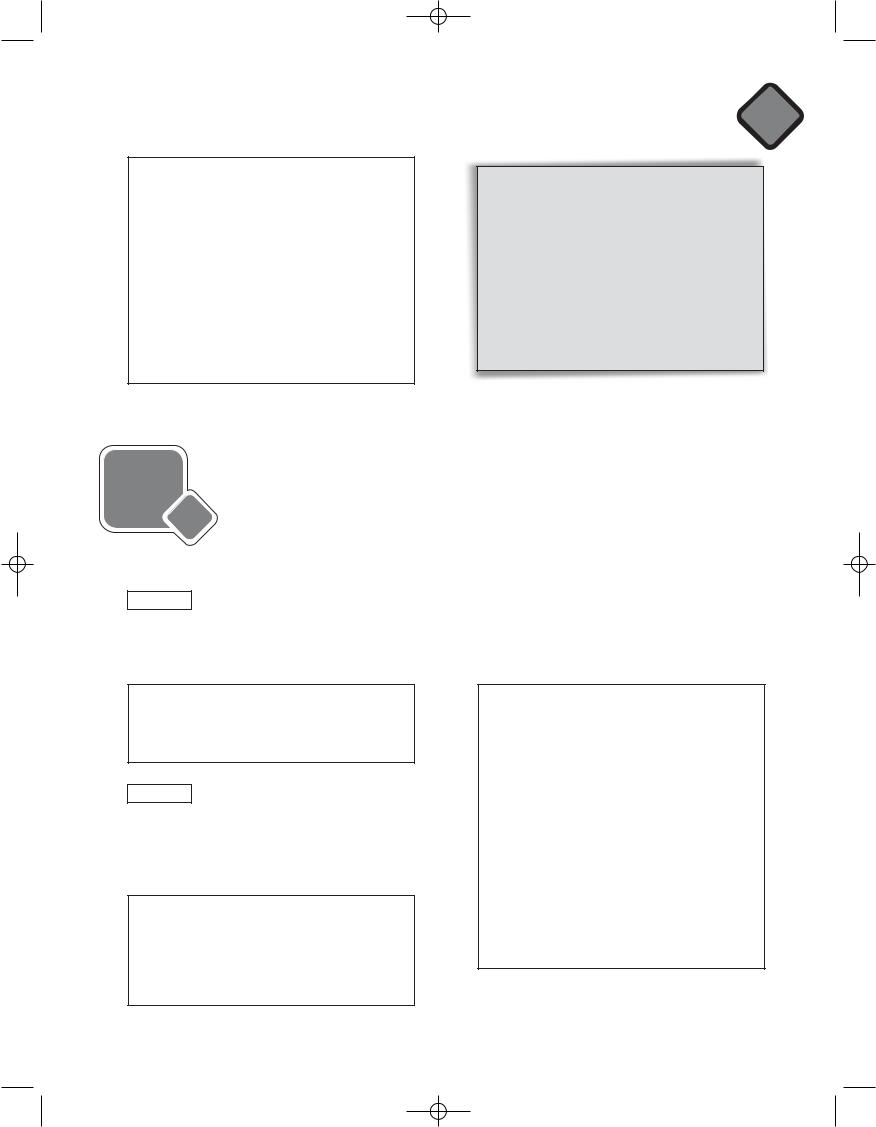
Spotlight 7 ts Mod 10 12-09-08 15:02 Page 143
Suggested Answer Key
Dear Computer Freak,
I’m sorry to hear about your problem. Here are a few things you can do to feel better.
First of all you should get a filter for your computer. Secondly, you should try to work less on your computer. You should also try to get more sleep. That way your eyes will be wellrested. Finally, I think you should see a doctor. You might need to wear glasses.
I hope my advice helps. Thank you for your letter.
Doctor, doctor! 10c
Synergy
ñAllow Ss one minute to think about they have learnt in today’s lesson.
ñWhen Ss have finished ask them to get and go around the class to find a who has something in common with e.g. same hair/eye colour, same same taste in music, etc.
ñAsk Ss to discuss what they have the lesson with their partner.
10d Culture Corner
Reading & Listening
1Focus Stimulating interest/Predicting content
Draw Ss’ attention to the picture and title. Ask Ss to predict what the text is about. Play the recording as Ss listen and check. Check Ss’ answers.
Suggested Answer Key
It is about the Royal Flying Doctor Service of Australia. This service gives medical help to people living in the remotest parts of Australia.
2Focus Reading for detailed understanding
ñExplain the task and explain the meaning of any new vocabulary. Ask Ss to read the questions and the text carefully. Allow Ss time to complete the task. Check answers.
Answer Key
1 Australia
2 Royal Flying Doctor Service of Australia
3 1928
4helping people that live in remote areas of Australia
ñAsk Ss to explain the meaning of the words in bold without the use of a dictionary, i.e. they can use synonyms, paraphrase etc. Elicit/Explain the meanings and write them on the board. Ss should copy the words into the vocabulary section of their notebooks.
Answer Key
isolated (adj): remote, far away from everything
The Australian Outback (exp): the interior of Australia
remote (adj): a long way from towns operating (v): working
critically ill (exp): very sick
daily life (exp): things you do every day as part of your normal life
non-profit charity (exp): an organisation that helps people, and doesn't make any money from doing so
set up (phr v): create an organisation/company
primary health care (exp): basic medical attention
143
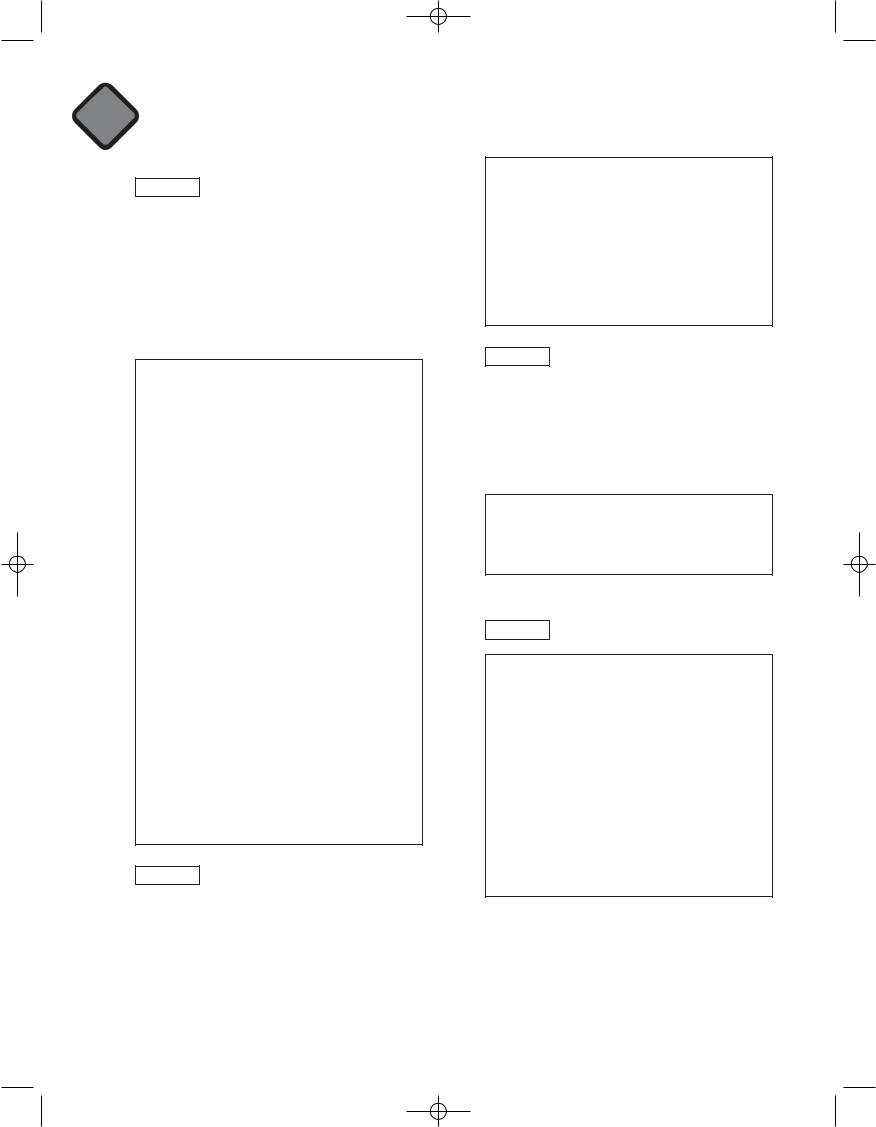
Spotlight 7 ts Mod 10 12-09-08 15:02 Page 144
10d Culture Corner
Role-playing an interview
Read out the rubric and explain the task. Check Ss’ understanding. Brainstorm ideas. Advise Ss to use the headings to organise their thoughts. Allow Ss time to work in pairs and prepare their interviews. Walk around the class monitoring the task and helping where necessary. Ask several pairs to act out their interviews for the class. Provide feedback and correct where necessary.
Suggested Answer Key
Interviewer: What does RFDSA stand for? Doctor: The Royal Flying Doctor Service of Australia.
Interviewer: What does the job involve? Doctor: We are responsible for 200,000 isolated patients in the most remote part of Australia, the Outback.
Interviewer: What is the daily life of a flying doctor like?
Doctor: Well, we treat patients on remote sheep farms with basic equipment. Sometimes it is very difficult to reach these patients when the weather is bad and we often risk our lives flying in awful weather conditions.
Interviewer: Can you tell us a bit about the history of the RFDSA?
Doctor: Of course. It started in 1928 and it is a non-profit charity. It offers primary health care from an aeroplane, 24 hours a day, 365 days a year, as well as educational assistance.
Interviewer: Thank you for talking to Teen Life. How can our readers find out more about you or get in touch with you?
Doctor: People can visit our website which is http://www.flyingdoctor.net/default.htm. for more about us. Thank you too!
4Focus Talking about a typical day in the life
of a flying doctor
Explain the task. Advise Ss that they can use information from their interviews from Ex.3. Brainstorm for other ideas. Ss prepare their talks and then tell their partners. Choose individual Ss to give their talks to the class. Provide feedback and correct where necessary.
Suggested Answer Key
Flying doctors must live very exciting lives. Their work means that they are often in very dangerous situations. A typical day in their lives would involve flying to remote areas of Australia to treat patients. Sometimes they have to fly these patients to a hospital for treatment. These doctors have to work even when the weather is very bad.
5Focus Forming adjectives from verbs
Read out the rubric and explain that the two suffixes -ive and -ative can be added to verbs to form adjectives. Explain/Elicit the meaning of the words 1-7. Allow Ss time to complete the task. Ss use their dictionaries to check their answers. Check answers around the class.
Answer Key |
|
|
|
2 |
informative |
5 |
attractive |
3 |
protective |
6 |
active |
4 |
creative |
7 |
imaginative |
Writing
6Focus Writing an article about a charity
Suggested Answer Key
The Salvation Army, founded by William Booth in 1878, helps people in over 100 countries. As well as feeding and offering shelter to the poor and the needy, the Salvation Army is involved with disaster relief services, day care centres, summer camps, holiday assistance, services for the aged, medical facilities, shelters for homeless women and children, family and career counselling, vocational training and correction services. More than 30 million people a year are aided in some form by services provided by The Salvation Army.
144
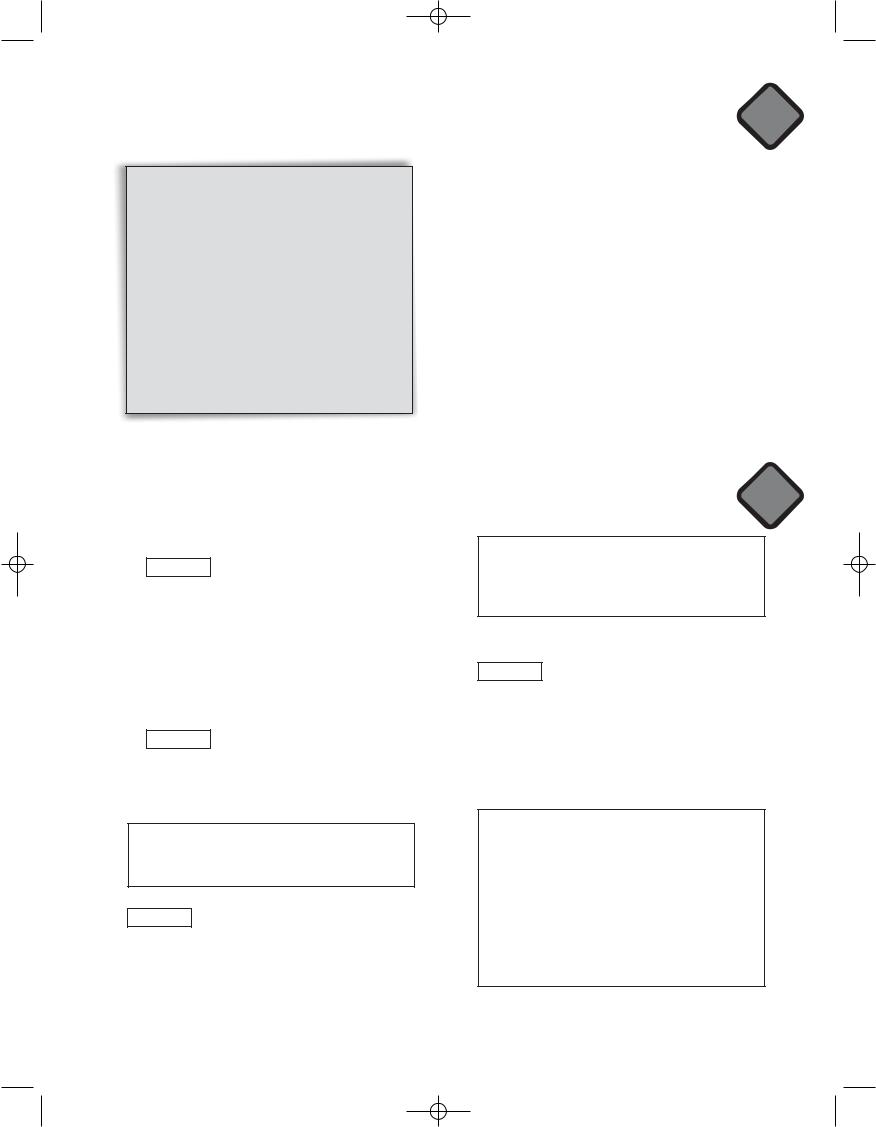
Spotlight 7 ts Mod 10 12-09-08 15:02 Page 145
Culture Corner 10d
Synergy
ñAllow Ss one minute to think about what vocabulary they have learnt in today’s lesson. Ask Ss to use them to make their own sentences.
ñWhen Ss have finished ask them to get up and go around the class to find a partner who has something in common with them e.g. same hair/eye colour, same clothes, same taste in music, etc.
ñAsk Ss to discuss what they have learnt in the lesson with their partner.
Reading & Listening
1 a) Focus Practising pronunciation and
intonation
Ask a S to read out the rubric. Explain the task and any new vocabulary. Ask individual Ss to read out the sentences. Check pronunciation and intonation. Play the recording, pausing after each sentence, as Ss repeat.
(as recording)
b) Focus Predicting content
Ask Ss for their predictions on the situation and who the speakers are. Play the recording again and then check Ss' answers.
Answer Key
The dialogue is between a schoolchild who is not feeling well and the school nurse.
2Focus Reading for detailed information
Focus Ss’ attention on the note and check Ss understanding of the task. Allow Ss time to read the dialogue and complete the task individually. Ss compare answers with a partner. Check Ss’ answers and write them on the board.
English in Use 10
Answer Key
get plenty of rest, have warm baths drink lots of water
in a couple of days
Speaking
3Focus Role-playing a dialogue
Instruct Ss to think of similar situations and use as much of the language seen in Ex 1 as possible. Walk around, monitoring the task and helping Ss where necessary. Ask pairs of Ss to act out their dialogues for the whole class. Elicit feedback from the class. Record Ss’ role-play, if possible.
Suggested Answer Key
A:Hello, Mrs Thompson.
B:Hi Sam. What’s wrong? You don’t look well.
A:I don’t feel well.
B:What’s the matter?
A:I’ve got a terrible headache.
B:I see. Have you been working a lot on your computer?
A:Yes, I have.
145
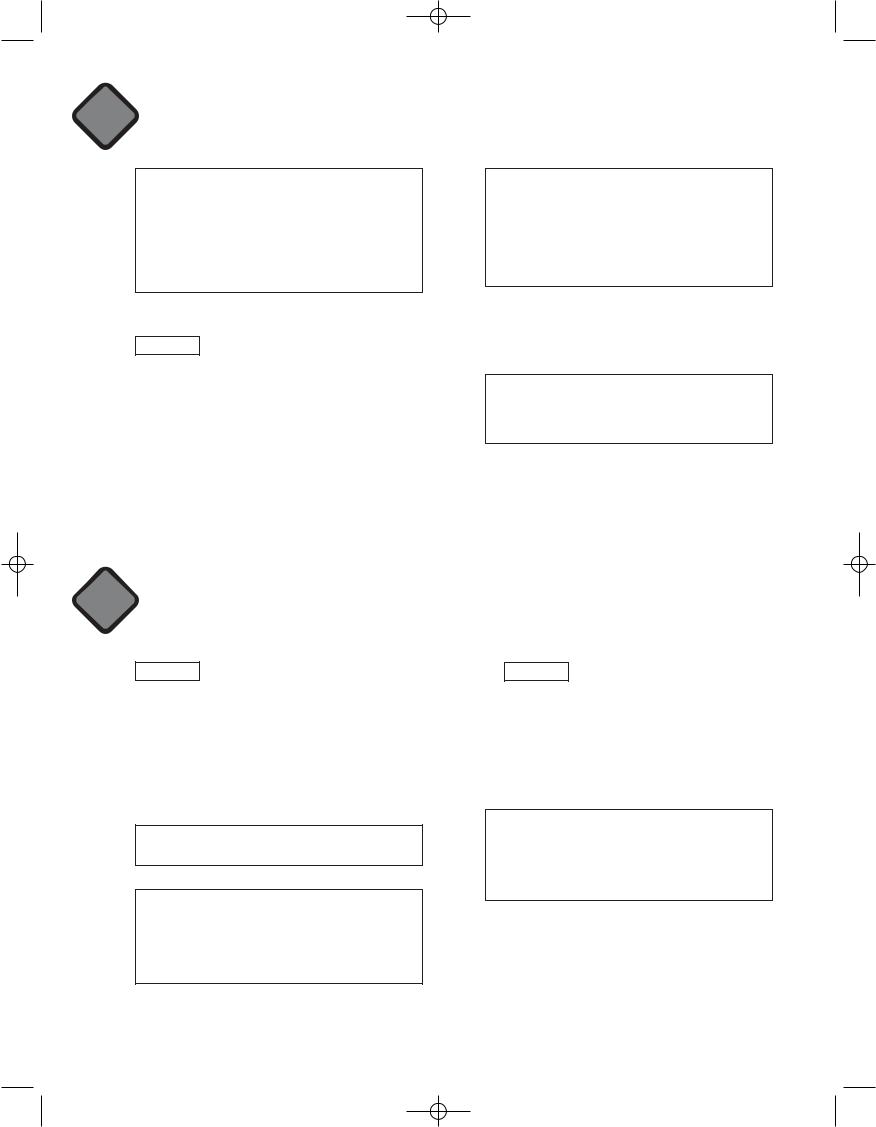
Spotlight 7 ts Mod 10 12-09-08 15:02 Page 146
10 English in Use
B:That’s probably the reason why. Here, lie down and put this ice-pack on your forehead.
A:When will I feel better?
B:In a little while. If it doesn’t go away, I’ll give you a painkiller.
Pronunciation
4Focus Identifying sounds; practising
pronunciation
ñDraw Ss’ attention to the phonemes chart in the appendix. Ask them to find the two symbols. Pronounce the sounds slowly and clearly. Demonstrate where your tongue, teeth and jaw are positioned for the class. Read the rubric and explain the task. Play the recording. Ss listen and tick the correct boxes. Ss compare answers. Check Ss’ answers and correct any mistakes.
Suggested Answer Key
|
/∑/ |
/¬/ |
|
/∑/ |
/¬/ |
bud |
|
|
foul |
|
|
town |
|
|
tonne |
|
|
noun |
|
|
nun |
|
|
done |
|
|
down |
|
|
|
|
|
|
|
|
ñAllow Ss time to think of more words with the same sounds. Check Ss’ answers around the class.
Suggested Answer Key
/∑/: mud, fun /ø/: round, sound
10 Extensive Reading
Building vocabulary related to
medicine
Focus Ss’ attention on the pictures and the vocabulary. Explain/Elicit the meaning of any new vocabulary. Explain the task. Allow Ss time to complete the matching task. Check Ss’ answers. Ask the questions in the rubric and initiate a class discussion.
Answer Key
1 d |
2 c |
3 b |
4 a |
Suggested Answer Key
I’ve taken all of the above apart form herbal remedies.
I’ve taken syrup for a bad cough, capsules when I had a fever and tablets for a headache.
Reading & Listening
2 a) Focus Predicting content/reading for
confirmation
Ask Ss the question in the rubric and draw their attention to the picture and the biography. Elicit predictions from Ss. Allow Ss time to read the biography and check their answers. Check Ss’ answers.
Answer Key
It shows Robinson Crusoe. He is shipwrecked alone on a desert island. He is probably writing in his diary. The book is ‘Robinson Crusoe’ by Daniel Defoe.
146
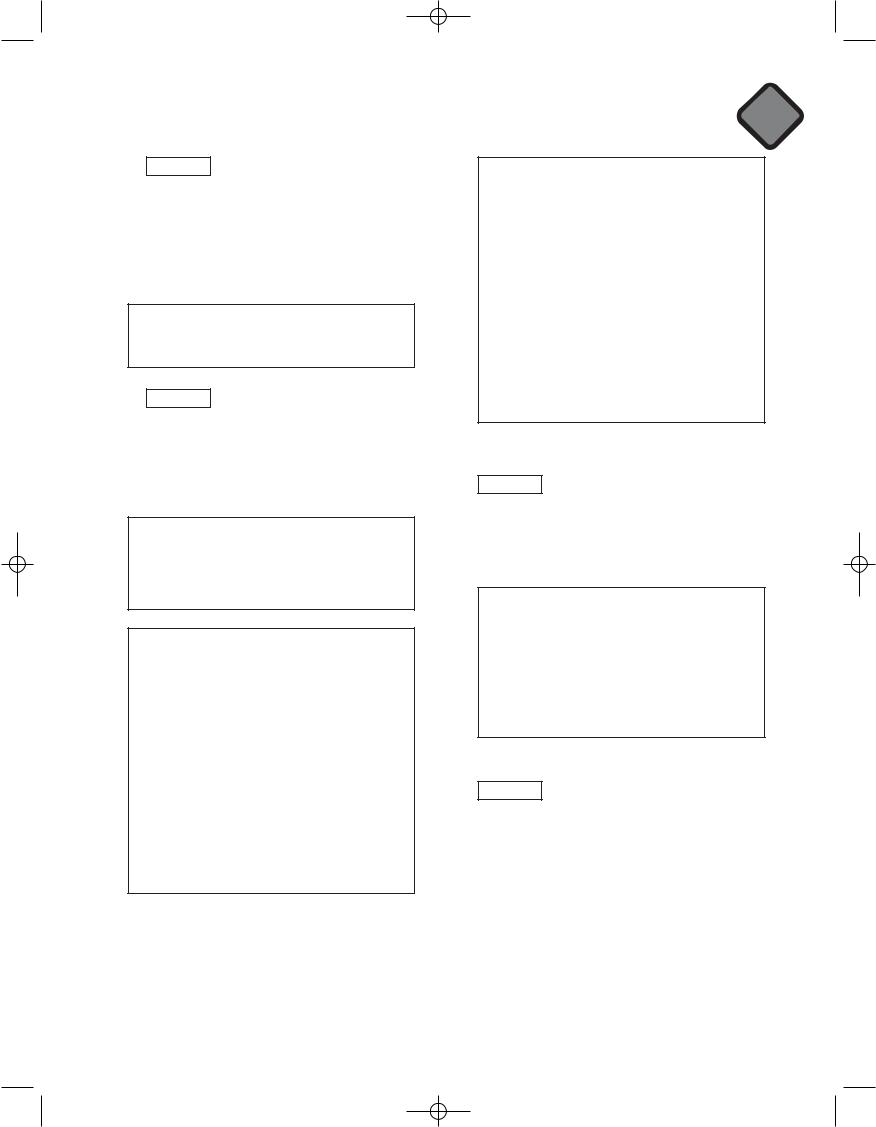
Spotlight 7 ts Mod 10 12-09-08 15:02 Page 147
b) Focus Reading for detailed understanding
Have a S read out the rubric and help him/her explain the task. Allow Ss some time to read the first sentence of each paragraph. Ask several Ss to report their answers to the class. Elicit feedback from the rest of the class. Play the recording as Ss read. Check Ss’ answers.
Answer Key
Robinson Crusoe is unwell and the passage describes what he does to get better.
3 a) Focus Identifying the topic of paragraphs
Explain the task. Check Ss’ understanding of the task. Allow them time to read again to identify the topic of each paragraph and suggest headings. Ss compare answers with their partners. Check answers with the class.
Suggested Answer Key
Preparing for the night ahead ― Para 1
Still weak ― Para 2
Resting on the beach ― Para 3
Feeling better ― Para 4
Answer Key
journalist (n): news writer author (n): writer
shipwrecked (adj): left alone after a ship has sunk fiction (n): non-factual literature
went into (phr v): got involved with refreshed (adj): enlivened
grilled (v): cooked food with very strong heat, either above or below it
miserable (adj): terrible, sad turtle (n): a reptile with a shell
roasted (v): food cooked with dry heat in an oven or on a fire
smooth (adj): soft/not rough cheerful (adj): happy and smiling
b)Ask Ss to explain the meaning of the words in bold without the use of a dictionary, i.e. they can use synonyms, paraphrase etc. Elicit/Explain the meanings and write them on the board. Ss should copy the words into the vocabulary section of their notebooks.
Extensive Reading 10
Answer Key
journalist (n): news writer author (n): writer
shipwrecked (adj): left alone after a ship has sunk fiction (n): non-factual literature
went into (phr v): got involved with refreshed (adj): enlivened
grilled (v): cooked food with very strong heat, either above or below it
miserable (adj): terrible, sad turtle (n): a reptile with a shell
roasted (v): food cooked with dry heat in an oven or on a fire
smooth (adj): soft/not rough cheerful (adj): happy and smiling
Speaking
4Focus Simulating a situation
Explain the task. Ss work in pairs. Monitor the task and help Ss with useful vocabulary. Ask several pairs to report their answers to the class and initiate a class discussion.
Suggested Answer Key
Build a hut: branches, wood from the beach and forest, stones; tie wood together with strong weeds
Get food: fish, hunt, eat plants & fruit
Keep warm: make a fire from dry branches and leaves; make a coat/blanket from leaves pinned together with pine needles
Writing
5Focus Writing an adventure story
Have a S read out the rubric and help him/her explain the task. Elicit the type of story Ss need to write and useful vocabulary (suddenly, all alone, dangerous, etc). Allow Ss time to make their story plans, helping Ss where necessary. Allow Ss some time to complete the task in class. Alternatively, assign the task for HW provided you have gone through it orally in class.
147
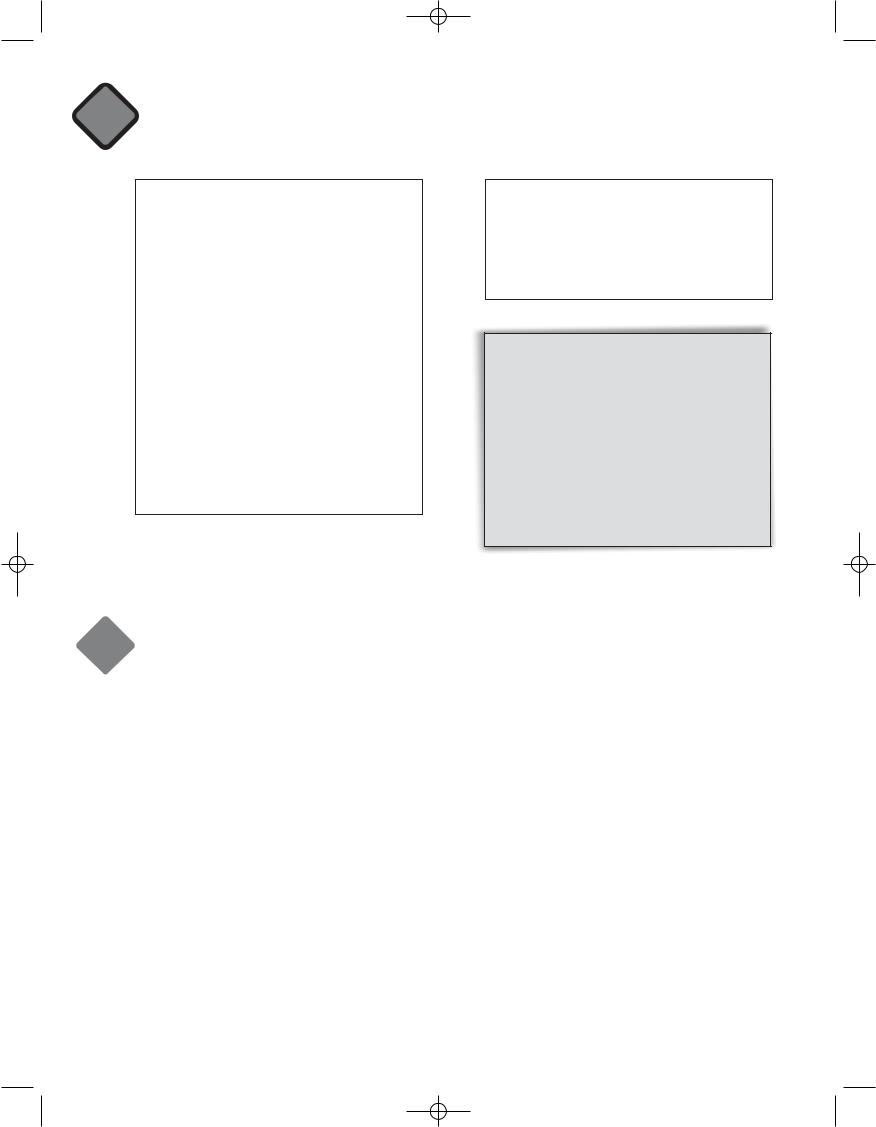
Spotlight 7 ts Mod 10 12-09-08 15:02 Page 148
10 Extensive Reading
Suggested Answer Key
After swimming for hours, I started to lose hope. Our boat had sunk and all I remembered was diving into the cold sea. I felt like giving up when suddenly I thought I saw trees in the distance. I looked again and saw I was right! I started swimming as hard as I could.
Half an hour later I felt the sand on my face. I lay there and I think I slept for hours. When I woke up, it was midday. I got up and looked around me. There was no one around. Just trees and wild flowers, the sea and the beach.
I was hungry so I ate some berries from a strange-looking tree. They were very bitter, but I was so hungry that I ate lots and lots. Suddenly, my tummy started hurting. Soon I was in such pain that I fainted.
When I woke up, I found myself in a hospital bed in a city. All my family was gathered around my bed and there were doctors, too. I felt so happy. My mum explained that it had all been a nightmare, probably caused by my high fever. I had the flu, that was all.
Synergy
ñAllow Ss one minute to think of ten words they have learnt in today’s lesson. Ask Ss to use them to make their own sentences.
ñWhen Ss have finished ask them to get up and go around the class to find a partner who has something in common with them e.g. same hair/eye colour, same clothes, same taste in music, etc.
ñAsk Ss to discuss what they have learnt in the lesson with their partner.
10 |
Progress Check |
|
|
|
|
|
|
|
|
|
|||
|
Key |
|
|
|
|
|
|
|
|
|
|
|
|
|
|
|
|
|
|
|
|
|
|
|
|
|
|
|
throw |
|
6 |
lose |
|
|
4 |
1 |
out |
3 |
apart |
5 |
behind |
|
break |
|
7 |
chip |
|
|
|
2 |
behind |
4 |
out |
|
|
|
move |
|
8 |
bang |
|
|
5 |
1 |
ourselves |
3 |
himself |
5 |
yourself |
|
sit |
|
9 |
twist |
|
|
|||||||
|
|
|
|
|
2 |
themselves |
4 |
myself |
|
|
|||
|
cut |
|
10 |
practise |
|
|
|
|
|
||||
|
|
|
|
|
|
|
|
|
|
|
|||
|
result |
3 |
react |
5 |
worried |
6 |
1 |
will take |
4 |
get |
|
|
|
|
|
2 |
will fail |
5 |
behave |
|
|
||||||
|
symptoms |
4 |
breathing |
|
|
|
|
|
|||||
|
|
|
|
3 |
won’t feel |
|
|
|
|
||||
|
|
|
|
|
|
|
|
|
|
|
|
||
|
sore |
3 |
regular |
5 |
high |
7 |
2, 4, 5, 1, 3 |
|
|
|
|
||
2 |
doctor’s |
4 |
light |
|
|
|
|
|
|
||||
|
|
|
|
|
|
|
|
|
|||||
148
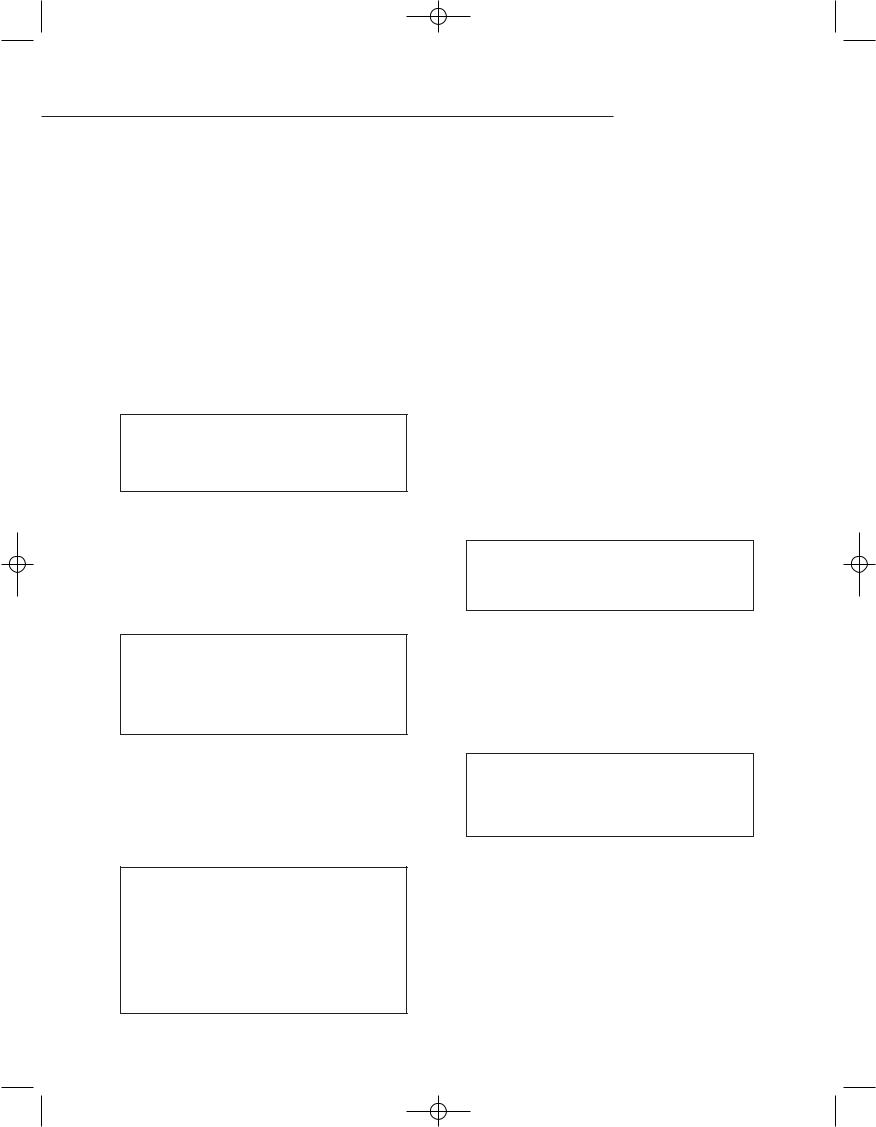
Spotlight 7 ts Songs 12-09-08 15:01 Page 149
Modules 1 & 2
1 ñ Draw Ss’ attention to the pictures and the rubric. Ask Ss to predict what the song is about (how to live well by finding the right kind of place). Write suggested answers on the board.
ñPlay the recording. Ss listen, read and check their answers.
ñElicit/Explain the meaning of any unknown words and then play the recording again.
2Draw Ss’ attention to the rubric and allow Ss time to read through the song again. Elicit the answer to the question and ask Ss to justify the answer by referring to the song.
Answer Key
The best place to live is different for everyone, so it’s important for people to find a place that suits them.
3ñ Draw Ss’ attention to the rubric and allow Ss time to discuss their answers in pairs. Encourage Ss to use words and phrases from the song. Monitor the activity and offer help as necessary.
ñElicit answers from around the class by asking Ss to report what their partner has said.
Suggested Answers
My partner prefers living in the city because there are more things to do and see.
My partner prefers living in the country because it is peaceful and quiet.
Proverbs
4 ñ Draw Ss’ attention to the proverbs and elicit/explain the meaning of any unknown words. Allow Ss time to discuss what they mean and elicit answers from around the class.
Answer Key
A place for everything, and everything in its place. Everything should have a place to be stored in and it should be put there when not in use.
An Englishman’s home is his castle.
English people feel safe and protected in their homes. They are also proud of their homes.
Song Sheets
ñAllow Ss time to discuss whether there are expressions with a similar meaning in their country and then elicit answers from around the class.
(Ss’ own answers)
Modules 3 & 4
1ñ Draw Ss’ attention to the picture and the rubric. Ask Ss to predict what the song is about (with enough determination it is possible to overcome any difficulties and succeed in life). Write suggested answers on the board.
ñPlay the recording. Ss listen, read and check their answers.
ñElicit/Explain the meaning of any unknown words and then play the recording again.
2Draw Ss’ attention to the rubric and allow Ss time to read through the song again. Elicit the answer to the question and ask Ss to justify the answer by referring to the song.
Answer Key
The singer feels that we can all achieve our ambitions if we have enough determination.
3ñ Draw Ss’ attention to the rubric and allow Ss time to discuss their answers in pairs. Encourage Ss to use words and phrases from the song. Monitor the activity and offer help as necessary.
ñElicit answers from around the class by asking Ss to report what their partner has said.
Suggested Answers
The song makes my partner feel optimistic about the future because s/he is determined to succeed.
Proverbs
4 ñ Draw Ss’ attention to the proverbs and elicit/explain the meaning of any unknown words. Allow Ss time to discuss what they mean and elicit answers from around the class.
149
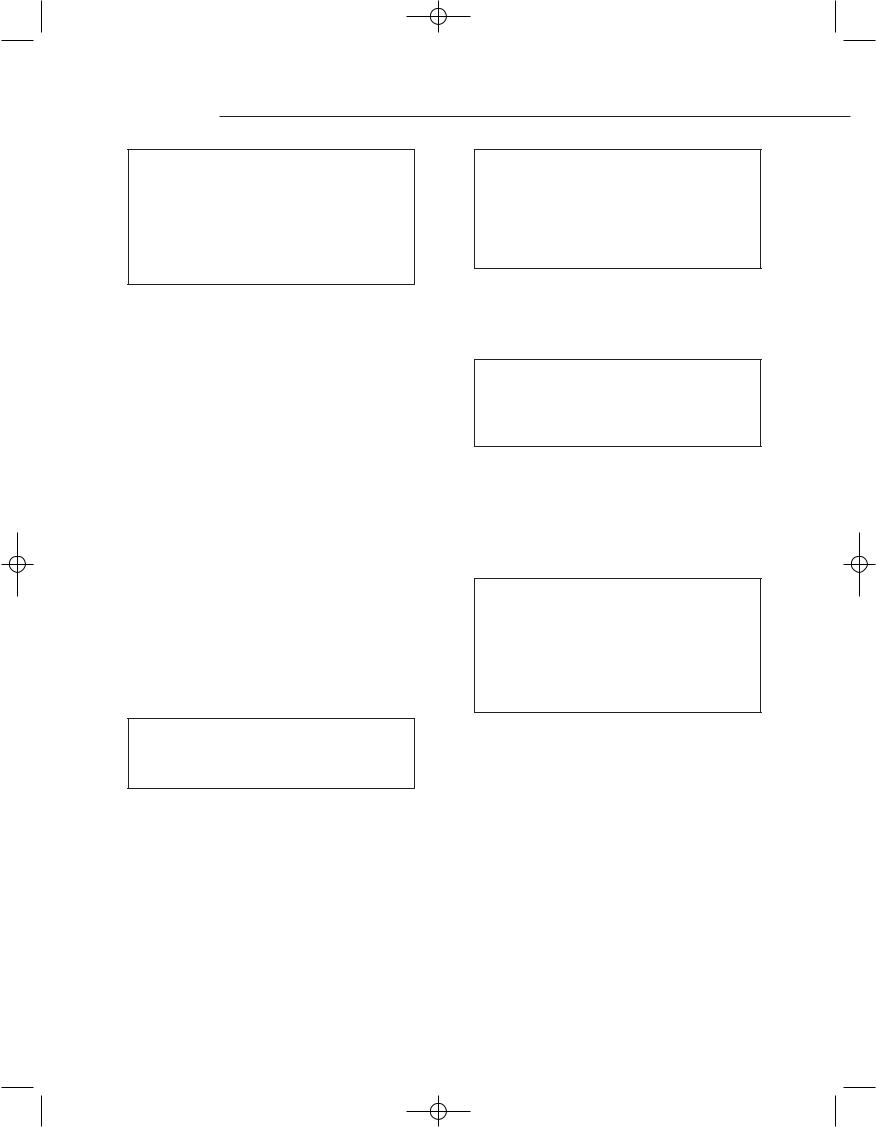
Spotlight 7 ts Songs 12-09-08 15:01 Page 150
Song Sheets
Answer Key
Where there’s a will, there’s a way. With enough determination anyone can find a means by which to achieve their goals.
The future belongs to those who prepare for it.
People are successful when they take actions now to improve their lives in the future.
ñAllow Ss time to discuss whether there are expressions with a similar meaning in their country and then elicit answers from around the class.
(Ss’ own answers)
Modules 5 & 6
1 ñ Draw Ss’ attention to the picture and the vocabulary. Elicit/Explain the meaning of any unknown words and then ask Ss to predict what the song is about (technological progress is improving our lives). Write suggested answers on the board.
ñPlay the recording. Ss listen, read and check their answers.
ñElicit/Explain the meaning of any unknown words and then play the recording again.
2Draw Ss’ attention to the rubric and allow Ss time to read through the song again. Elicit the answer to the question and ask Ss to justify the answer by referring to the song.
Answer Key
The singer likes technology because he believes it has an entirely beneficial effect on our lives.
3ñ Draw Ss’ attention to the rubric and allow Ss time to discuss their answers in pairs. Encourage Ss to use words and phrases from the song. Monitor the activity and offer help as necessary.
ñElicit answers from around the class by asking Ss to report what their partner has said.
Suggested Answers
My partner believes that technology is making the world a better place in many different ways.
My partner thinks that technology can cause more misery than it prevents.
4Draw Ss’ attention to the rubric and allow Ss time to discuss their answers in pairs. Elicit answers from around the class.
Suggested Answers
I think that the Internet is the most important invention because it has made information widely available to everyone.
Proverbs
5 ñ Draw Ss’ attention to the proverbs and elicit/explain the meaning of any unknown words. Allow Ss time to discuss what they mean and elicit answers from around the class.
Answer Key
Man is greater than the tools he invents. The creator is necessarily more important than the things created.
Time and tide wait for no man. Progress moves onwards whether or not individuals are prepared for it.
ñAllow Ss time to discuss whether there are expressions with a similar meaning in their country and then elicit answers from around the class.
(Ss’ own answers)
Modules 7 & 8
1 ñ Draw Ss’ attention to the pictures and the vocabulary. Elicit/Explain the meaning of any unknown words and then ask Ss to predict what the song is about (achieving success and popular acclaim). Write suggested answers on the board.
ñPlay the recording. Ss listen, read and check their answers.
ñElicit/Explain the meaning of any unknown words and then play the recording again.
150
